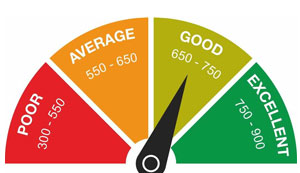Good Credit Score – When it Comes to Real Estate
Good Credit
What is ‘Good’ Credit in Real Estate?
In the real estate world, most experts agree that if your FICO score is at least 740, you’ll be eligible for the best interest rates that are offered at the time. However, for every 20 points your credit score comes in below this 740 threshold, you’re likely to have add-ons to the interest rate – and you may not be eligible for certain programs. So say, for instance, that you have a 740 credit score and you lock in a 4.125 percent interest rate on your mortgage loan. If your score came in at 700, your rate might be 4.5 percent, at 660 it might be 5 percent and so on.
The experts also agree that too low a credit score will result in either very high interest rates or in complete denial of your mortgage application. Generally speaking, this low range where things can become somewhat sticky is between 600 and 620.
In saying all of this, it is worth noting that whether a mortgage application is approved or denied, as well as the interest rate, is largely dependent on the lender that you’re working with. For instance, some lenders may be more flexible with low credit scores than others.
What if I Have Poor Real Estate Credit?
If you’re in the 600-620 gray area and are either unsure of whether your mortgage application will be approved or if you can afford a higher interest rate if it is approved, your best option is to work to repair your credit to make you a more attractive consumer in the future. Here are some tips and suggestions in doing so:
- Make sure you pay all of your bills on time. This is one of the largest weighed factors in determining your credit score.
- Concentrate on paying down high-interest debt.
- Check your credit report to ensure that it is error-free. (It’s estimated that the majority of credit reports have some sort of error on them.)
- Ensure that your debts owed is at or less than 30 percent of your total credit allotment.
- Only take out new lines of credit when necessary.

